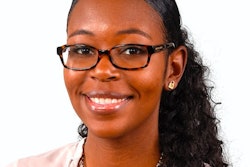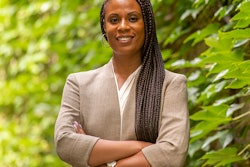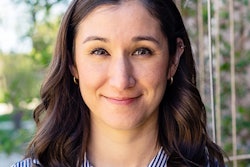Title: Assistant Professor of Political Science; Director of the Center for Nonviolence and Peace Studies at the University of Rhode Island
Tenured: No
Age: 38
Education: B.A., history, Tufts University; M.A., international affairs, The New School; and Ph.D., political science, Binghamton University
Career mentors: Dr. David L. Cingranelli, Binghamton University and Dr. Dave H. Clark, Binghamton University as well as so many others who have supported and helped me along the way
Words of wisdom/advice for new faculty members: “Most things can wait. You can drop the ball occasionally, and missing a few deadlines won’t be the end of the world. While work is important, there are far more important things in life and making those a priority will make you a better scholar, activist, and person. Pass this on to your students and prioritize their mental and emotional wellbeing rather than trying to instill a strict work ethic. You will change many lives including your own when you separate work from your identity.”
For as long as he can remember, Dr. Brendan Skip Mark has been focused on trying to understand what it would take to eradicate worldwide poverty and some of the other social ills that impact society. His work has long focused on the intersections among human rights, political economy, collective dissent, and empirical methodology.
Trending issues like violent and non-violent protests, development, economic crisis, and economic and social rights have also occupied his scholarly orbit.
It’s a tall agenda for someone who wasn’t sure if he would wind up in the academy as an academic, but Mark has been up to the challenge.
Amid the global economic crisis in 2008, Mark says he worried what he would do with his undergraduate degree in history from Tufts University. He had worked as a cook in restaurants since he was 15 and figured he would simply get a full-time job in the hospitality industry.
“I got to see how people treated blue collar workers,” he says. “There tends to be a pretty toxic work environment; people are underpaid, overstressed, and overworked.”
Fueled by his interest in economic justice, Mark applied and was awarded an opportunity to study in Venezuela in 2009 as part of a global exchange program that connects students directly with activists and policymakers working on critical issues. That experience proved to be life-altering.
When he returned to the U.S., Mark enrolled at the New School, where he earned a master’s degree in international affairs in 2012. He later earned a master’s and Ph.D. in political science from Binghamton University and secured a tenure-track teaching position at the University of Rhode Island (URI) in 2018.
At URI, he teaches a wide range of classes on human rights, international relations theory, political violence, Black protests, and research methods.
“Given my interests, I have a pretty broad teaching agenda, and there are a lot more classes that I would like to teach,” says Mark. “I learn a ton from my students.”
When he is not teaching, Mark is running URI’s Center for Nonviolence & Peace Studies.
“What I try to do is combine research, teaching, and the activism piece of what I do,” says Mark who inherited the center that was started in the late 1990s and was connected to a long history of student activism at URI. The first director was Dr. Bernard Lafayette Jr., a civil rights activist who worked closely with Dr. Martin Luther King Jr.
“I think that students are far more progressive, in-tuned, and knowledgeable about what’s going on than we give them credit for,” says Mark, adding that his students are much more hopeful about the future. “The students keep me hopeful. I actually think that when they’re making decisions, we’re really going to be in a much better place.”
Dr. Jeannette E. Riley, dean of Arts and Sciences at URI, says Mark has contributed much to the campus community and points to the recent $250,000 Knowledge for Freedom Grant that he and Dr. Catherine John, chair of Africana Studies, received from the Teagle Foundation. This summer, the two scholars will bring 11th graders from disadvantaged communities in Rhode Island to URI, where they will learn about social science research, work on a project related to race and violence, and have discussions about contemporary issues using social science research.
“What may be most startling about Dr. Mark, despite the worldwide scope of his scholarly profile, is his devotion to justice, diversity, equity, and inclusion in and beyond the classroom,” says Riley. “As one of URI’s young BIPOC faculty, Dr. Mark not only seeks to dismantle the hierarchies of privilege and prejudice that can lurk beneath conventional classroom norms, he also actively works to offer alternative pedagogies in practice, whether in allowing students to contribute to course syllabi development or in training, mentoring, and employing more than 25 University of Rhode Island students, both graduate and undergraduate, within an impressive variety of his research-based endeavors.”


















